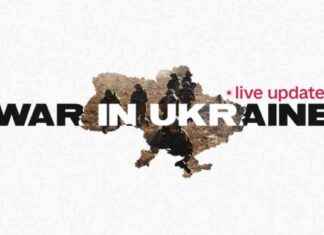The Russian Government Prepares for US Sanctions Relief amid Ceasefire Talks
In recent developments, the Kremlin has been actively soliciting feedback from businesses on which sanctions they believe should be lifted in anticipation of ceasefire negotiations with the United States. This strategic move comes as US President Donald Trump has pledged to ease certain sanctions on Russia contingent upon an agreed ceasefire, while also issuing warnings of more severe measures should diplomatic talks falter.
Russian Ministry of Industry and Trade officials have distributed surveys to various companies, seeking input on the sanctions deemed most critical for removal. According to a report by Reuters, a primary concern for Russian businesses involves transactions conducted in US dollars and euros. The abrupt disconnection of Russian banks from the SWIFT international payment system has compelled companies to seek alternative routes for processing transactions through third-party countries and different currencies. This restructuring has inevitably led to operational delays and increased financial burdens.
A notable challenge highlighted by industry sources cited in the Reuters report is the impediment posed by restrictions on dollar-denominated payments. The absence of direct access to dollar and euro markets through SWIFT has not only disrupted payment workflows but has also complicated the timely receipt of funds. To navigate these obstacles, Russian enterprises have been exploring alternative avenues to conduct transactions, often resorting to intermediaries in other countries.
Furthermore, the report sheds light on the broader repercussions of US sanctions on Russia’s oil sector, including constraints on the country’s tanker fleet and the continued sanctioning of key oil extraction and distribution entities. These sanctions have not only disrupted the operational efficiency of these companies but have also added a layer of complexity to their financial transactions.
As the diplomatic landscape evolves, the Russian government maintains its stance on the illegitimacy of all sanctions imposed in response to its military actions in Ukraine, advocating for their immediate removal. While spokesperson Dmitry Peskov refrained from divulging specific demands ahead of negotiations, he emphasized the impracticality of prematurely disclosing negotiation terms.
In a bid to gauge the sentiment of foreign entities operating in Russia, a meeting between Russian business representatives and Robert Agee, head of the American Chamber of Commerce in Russia, was convened to discuss sectors where sanctions relief would be most beneficial. Alexander Shokhin, head of the Russian Union of Industrialists and Entrepreneurs, underscored the significance of reinstating Russian banks in the SWIFT system and normalizing payment and settlement processes.
Within the financial realm, analysts like Andrei Meleshenko from Renaissance Capital caution that even if the US relaxes sanctions, the restoration of the payment system may face hurdles, particularly due to potential reluctance from European counterparts. Approximately $300 billion in Russian assets remain frozen primarily within European jurisdictions, signifying a significant economic strain on Russia.
Despite the anticipation of potential sanctions relief, some Russian business leaders remain cautious, with Herman Gref, CEO of Sberbank, and Eduard Gudkov, CEO of Novatek, bracing for the possibility of even stricter sanctions in the future. The uncertainty surrounding the outcome of ceasefire negotiations underscores the delicate balance between economic stability and geopolitical tensions in the region.
As the intricacies of international diplomacy unfold, the preparations by the Russian government for potential US sanctions relief serve as a testament to the complex interplay between economic interests and political negotiations on the global stage. The evolving dialogue between key stakeholders underscores the need for nuanced strategies and adaptive approaches in navigating the intricate web of international relations.

















